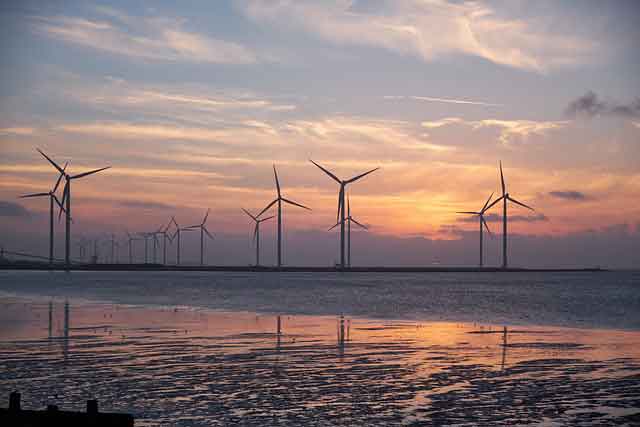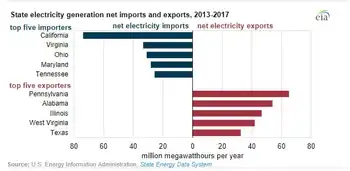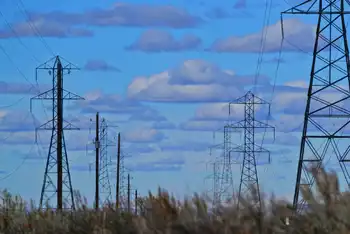Emirates starts work on zero-carbon city
By The Missoulian
High Voltage Maintenance Training Online
Our customized live online or in‑person group training can be delivered to your staff at your location.

- Live Online
- 12 hours Instructor-led
- Group Training Available
Environmentalists say the new city - powered mainly by solar energy and recycling waste and water - is a nice idea, but the Emirates shouldn't stop there.
"Every little bit helps," said Jonathan Loh, a British biologist who co-authored a 2006 World Wildlife Fund report that measured consumption by nations around the world. "It would be best if the UAE reduced energy consumption throughout the country not just in one location."
The WWF runs several programs based on its 10 principles of sustainability in Europe, North America, China, Africa and in the Middle East.
A $1.6 billion project in development in Portugal would build 5,000 zero-carbon, zero-waste homes, hotels and shops. The project includes Europe's largest-ever nature restoration plan in order to return more than 12,000 acres of surrounding land currently occupied by degraded logging plantations and quarries to native Mediterranean woodland.
The United Arab Emirates has the world's largest ecological footprint per capita, according to the WWF report. That means each of its residents uses up more of the world's resources than any other person in the world.
A glance at Dubai makes it clear why. Nearly every indoor space - including sprawling malls and giant villas - is air conditioned, seen as a necessity in a country where the winters are hot and the summers blazing. Extravagances like swimming pools with chilled water, an indoor ski slope that produces snow when it's 120 degrees outside and an all-ice restaurant push up the electricity bill. The unusual mode of transport is SUV or Hummer - there is no public transportation, or even sidewalks in most parts of the city.
According to the WWF, the Emirates' ecological footprint measured 11.9 global hectares per person. A global hectare is a unit of the amount of productive land and water a person requires to produce all the resources he consumes and absorb all the waste he generates in a year. In contrast, the U.S.'s per capita footprint is 9.6 hectares per person, and the global average is 2.2 hectares a person.
The Emirates - which has a population of 5 million, the large majority of them foreign expatriates - has a heavy per capita carbon footprint as well - it takes 9.06 global hectares of land to absorb each person's carbon dioxide emissions in a year. The United States' carbon footprint is 5.66, and the world average is 1.7.
But the plan is for Masdar City, where the groundbreaking on construction took place earlier this month, to be completely carbon-zero.
Cars will be banned, with a light rail serving residents inside the 1,482-acre city as well as taking them to the nearby city of Abu Dhabi. Organic food will be grown in the area and encouraged, garbage will be recycled and waste water will be reused in Masdar, Arabic for "Source."
Most of the city's energy is to be generated by solar power - though developers have not given an exact percentage - and water will be provided through a solar-powered desalination plant.
Masdar City, which is being developed by an Abu Dhabi state-owned company, is expected to be completed by 2015 at an estimated cost of $22 billion. It is intended to become home to about 50,000 people and host 1,500 companies, developers said.
Khaled Awad, development director for Masdar, insisted the city is an honest attempt "to curb the trend of being environmentally irresponsible." He said the companies in it will make it a "Silicon Valley for renewable energy sector," researching clean energy technology.
Under a deal with the Emirates government, the WWF is monitoring the city closely to ensure it reconciles its promises.
"It's a rigorous process... that at the end will prove if Masdar is sustainable or just claims to be such," said Eduardo Goncalves, a London-based spokesman of WWF International's One Planet Living program.
Habib al-Shuwaikhat, a professor of urban planning and sustained development at Saudi Arabia's King Fahd University of Petroleum and Minerals, said Abu Dhabi's eco city "looks like a good initiative," but one that cannot remain "isolated" from the rest of the country.
"You hear a lot about sustainable development, but to be honest, I don't see it on the ground," Shuwaikhat said. Serious efforts to safeguarding the environment in the time of an unprecedented construction boom in the Gulf have yet to "get into the minds of decision makers" in the Gulf, he said.
Last year the Emirates became the first government to sign an agreement with WWF to study the country's ecological footprint and reduce it to a sustainable level through expert assessment of economy over the next three years, Goncalves said.
"Masdar is critical to our strategy," Goncalves said. People in the Emirates are leading lives that are "absolutely unsustainable," he said. "There is no better place to set an example and show that an ecologically friendly lifestyle is not only better, but also commercially successful."











